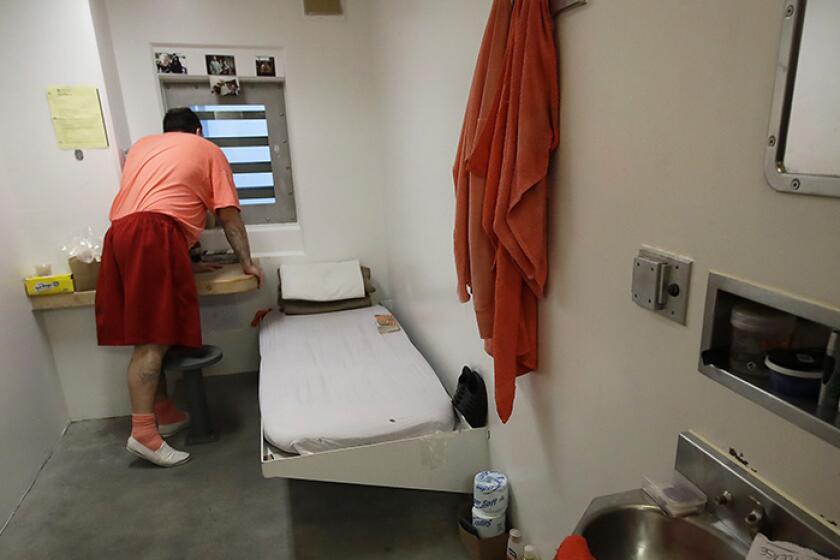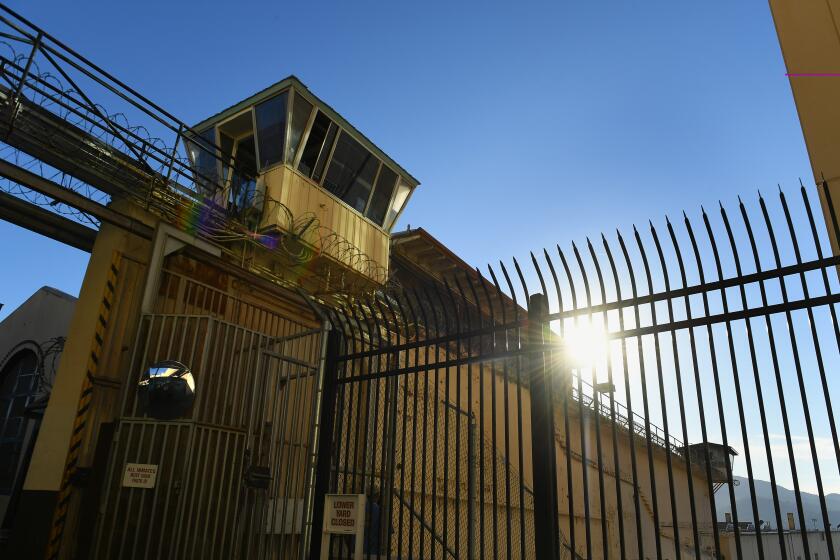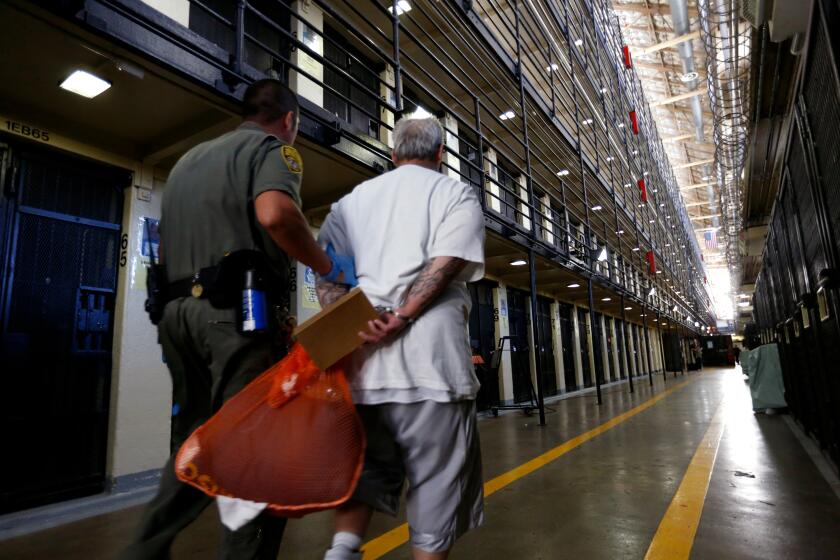Newsom should solve two problems at once: Close prisons and cut spending

- Share via
California stands at a pivotal moment as Gov. Gavin Newsom confronts a looming deadline to sign the state budget into law by July 1. Democrats are still haggling behind the scenes about many priorities, so it’s not too late to make the right calls. California’s daunting $32-billion deficit presents another opportunity to do something the state needed to do anyway: curb out-of-control spending on our state’s sprawling prison system.
By seizing the chance to close more California prisons, we can forge a transformative path that not only tackles the history of harmful prison expansion but also directs resources toward meeting the long-neglected needs of many communities.
Decarceration will cost jobs, but not “good” jobs. Curbing the prison industry will ultimately benefit the economy and interrupt a cycle of trauma.
The California Department of Corrections and Rehabilitation is a money pit with an annual budget of more than $14 billion. Repairing California’s 12 oldest state prisons would require an astronomical $11 billion. The department recently wasted $31 million on a new healthcare facility at California Correctional Center, a prison now slated for closure this month.
More than any other state department, the Department of Corrections and Rehabilitation has a clear pathway to reduce spending. According to the nonpartisan Legislative Analyst’s Office, deactivating just five prisons would save the state approximately $1 billion a year. This revelation underscores the feasibility and urgency of prison closures to effectively address our budgetary challenges.
Newsom faces mounting pressure to close prisons and support local communities. After reviewing a withering budget assessment, the state Legislature took a significant step by rejecting key parts of Newsom’s ill-conceived plan to rebrand San Quentin Prison as a “rehabilitation” center. Even philanthropists, in an unusual public rebuke, openly called for Newsom to abandon this misguided effort.
After the governor’s failure of moral leadership, California lawmakers must step up to end this cruel and counterproductive practice.
Meanwhile, California Democrats champion a budget plan that seeks to close an additional five prisons by 2027. The state’s own analysis affirms that at least eight prisons statewide could be closed without overcrowding the remaining facilities. This resounding call for change represents an unparalleled opportunity for Newsom to demonstrate decisive leadership and champion equitable, cost-effective investments.
To realize this vision, Newsom should listen to these diverse voices and adopt a comprehensive road map for prison closures. Such a plan would include economic development investments for areas most affected by the incarceration crisis, including towns where prisons close.
Prison closure requires careful planning — and often faces local resistance. The state could be encouraging towns willing to shift their economies away from a perceived reliance on incarceration by offering economic development grants to create high-quality jobs. This would alleviate some economic anxiety for rural communities that see prison employment as “good jobs,” despite evidence to the contrary.
Senate Bill 254 would fix that by making state prisons and county jails more accessible to reporters and lawmakers, who can be denied entrance to view conditions or talk to inmates.
One prime candidate for closure is the California Rehabilitation Center in Norco. Notorious for cockroach and rodent infestations, poor drinking water and crumbling infrastructure, it has twice been targeted by lawmakers seeking to close the prison over the last decade. Both the mayor and the prison’s officials have expressed their support for the closure, recognizing the potential for much-needed development in Riverside County. Norco is a great candidate to close alongside the soon-to-be-shuttered Chuckawalla Valley State Prison in Blythe.
It is essential to debunk the fallacy that prisons are strong engines for economic growth. In reality, rural prison towns have shouldered the burden of monolithic prison economies for far too long. Blythe has been home to Ironwood State Prison and Chuckawalla since 1994. And yet, for 30 years, these prisons have done little to prevent a quarter of Blythe’s population from living in poverty. This glaring reality underscores the inherent inadequacy of prisons as sustainable solutions for economic development.
We must explore alternative approaches that extend beyond the limited benefits prisons purport to offer. The higher priorities are creation of diverse jobs, long-term prosperity and the overall well-being of communities statewide.
Serving life in San Quentin, I can and must tell the outside world what’s happening inside. How else can Americans ensure prisons reflect our values?
Decades of prison expansion in California have taught us that merely locking more people up does not resolve our collective social crises. To truly address harm and violence, we must redirect resources toward community-led services that empower struggling Californians to thrive. State and local decision-makers can engage the public to envision a post-closure future, repurposing closed prisons in alignment with each community’s unique needs. It is imperative that we guard against the possibility of closed prisons being recycled as immigration detention centers and ensure a just transition to healthier economic models.
To safeguard the state’s fiscal health and do right by vulnerable Californians, Newsom must act swiftly to solidify more prison closures as part of this year’s budget process. The clock is ticking. Will he do the right thing for California?
Brian Kaneda is the deputy director of Californians United for a Responsible Budget.
More to Read
A cure for the common opinion
Get thought-provoking perspectives with our weekly newsletter.
You may occasionally receive promotional content from the Los Angeles Times.













